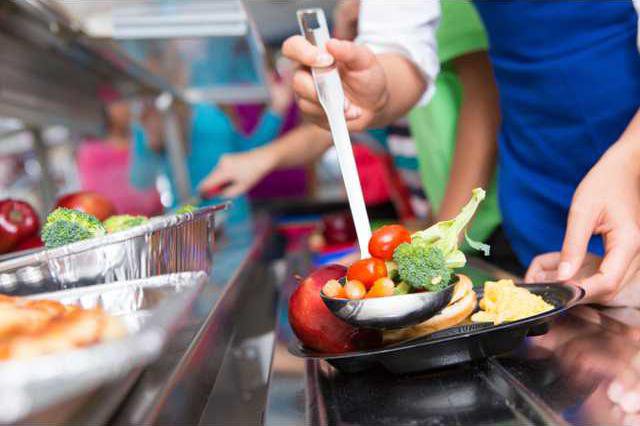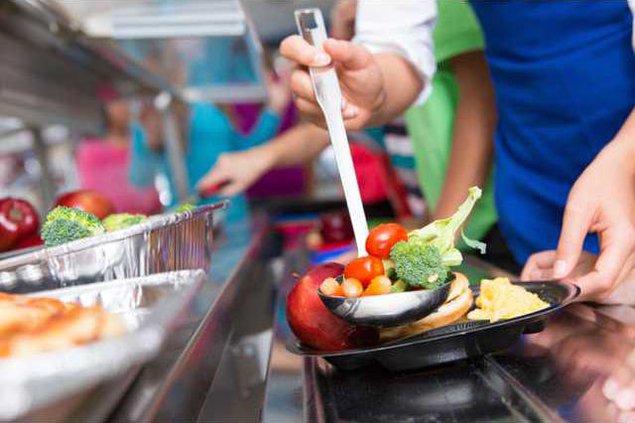NEW YORK — Despite widespread availability of healthy school lunches, kids are saying “no” to more vegetables mandated by federal standards, a new study says.
The study, conducted by the Johns Hopkins Bloomberg School of Public Health, observed the actions of 274 children from kindergarten to second grade from 10 different New York City public schools. The kids were offered a fruit, vegetable, whole grain, low-fat milk and a lean protein.
Nearly six in 10 kids put a vegetable on their tray, but less than a quarter actually took a single bite., the researchers said. And while 75 percent chose the lean-protein entrée, only 58 percent took a fruit and 59 percent chose a vegetable.
"We have been thinking that if young children choose healthy food, they will eat it," Dr. Susan M. Gross, a researcher for the study, said in a news release. "But our research shows that is not necessarily so."
Federal standards that were updated in 2012 have forced unhealthy foods from the menus and replaced them with healthier options. Critics predicted that more food would just go to waste despite a study showing there was a decrease in vegetable waste.
A study in 2013 estimated that kids can waste as much as $1.2 billion worth of school lunch food, Today.com reported. Students threw away 75 percent of their vegetables and 50 percent of their fruit.
Bloomberg researchers also noted that the noise level affects how much food students consume.
"As much as we are focused on menus in the school lunch program, we need to look more at our cafeteria environments, especially with our youngest children," Gross said. "We can give kids the healthiest food possible, but if they don't have time to eat it or they are distracted by how noisy the cafeteria is, they're not going to eat it."
This study comes on the heels of another study stating that school lunches are now healthier than home-packed lunches, which are often high in fat content and include desserts.
"While it is surprising to see the higher sodium content in the school lunch, the nutritional pluses of the school lunch — more fiber, vitamin A and less sugar and saturated fat — make the (nutritional) value aspect of school lunch better," Connie Diekman, director of nutrition at Washington University in St. Louis, told WebMD.
Don't want to deal with school lunches and the potential waste? Use these tips to help make a healthy lunch you know your kid will eat.
"Include a fruit, a vegetable, protein and dairy," she said. "Pack a sandwich. Put in an apple and carrot sticks."
Kids rarely eat veggies from school lunch, study says





